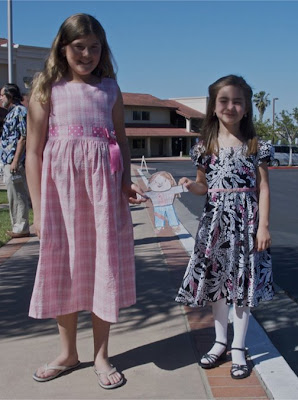
Revolutionaries come in many flavors. Some of them, like Lenin and Che Guevara urged people to fight, to take up arms and overthrow a corrupt system of government. They are pictured on propaganda posters as leading a charge with rifles raised. Others, like Mathama Gandhi, Martin Luther King Jr. and Mother Theresa, declared that violence would not bring the desired result but could only exacerbate pain and suffering. They are pictured in attitudes of contemplation or prayer or service.
Whatever it was that Jesus actually did or said during his short life, it is clear that he was a revolutionary. Although accounts of his life are often muddled, few people in the Western World doubt that a man called Yeshua, or Jesus, lived two thousand years ago in a remote, insignificant province of the Roman Empire. He changed the world.
In sermons preached every Sunday in churches around the world, congregations are urged to follow Jesus. Which Jesus are we to follow, the one with raised fist or the one being led meekly to crucifixion? Or is there another Jesus?
It isn’t clear from the sometimes conflicting stories in the Gospels of Matthew, Mark, Luke, and John that Jesus’ teachings are the thoughts and words of a revolutionary determined to turn his world upside down or the expressed philosophy of someone who urged people to take it easy, let it go, chill, relax, and to take no offense even when insulted or injured. Some people prefer to think Frank Sinatra got it right when he sang about being slapped down by life: “I pick myself up, dust myself off, and start all over again” Others prefer Onward Christian Soldiers as anthem.
For many years, the red letter edition of the Bible had the effect of putting a straight jacket on my mind. We are urged to believe that all those passages in red are words and phrases and sentences spoken literally from the mouth of Jesus. The scholars who marked the passages to be printed in red didn’t take into account, because it probably didn’t occur to them, that some of what was reported as having been said by Jesus was actually ad libed by Matthew, Mark, Luke and John, words the Gospel writers thought it was fair to believe he might have said. What is consistent in all of the stories, however, is that Jesus was a revolutionary thinker for his time in history. Madison Avenue would say he could think outside the box. But how does one choose among the several pictures of Jesus painted by the Gospel writers? Which is the one to follow, the one to emulate in day-to-day living? Is it the Jesus of Matthew 10: 34-38 (“Think not that I came to send peace on the earth: I came not to send peace, but a sword. For I came to set a man at variance against his father, and the daughter against her mother, and the daughter-in-law against her mother-in-law: and a man’s foes shall be they of his own household. He that loves father or mother more than me is not worthy of me; and he that loves son or daughter more than me is not worthy of me. And he that does not take his cross and follow after me, is not worthy of me.”)? Or is it the Jesus who gave his disciple Peter a direct, absolutely clear answer when he asked, “Lord, how often am I to forgive my brother if he goes on wronging me? As many as seven times?” Jesus answered, “I do not say seven times; I say seventy times seven.”
Some of the confusion for me comes later, especially after the Sermon on the Mount, when Jesus’ outbursts suggest violence as remedy. For his written account of the life of Jesus Matthew obviously gathered saying of Jesus, especially from Mark, and set them in the context of one long teaching session that he pictured as having taken place on a hillside. Jesus’ Sermon on the Mount is full of reassurances and admonitions, the rewards and responsibilities of “The Blessed.” Matthew carefully presents the teacher’s central message as a series of contrasts between the old ways of doing things and the new ways suggested by Jesus. “ You have learned that our forefathers were told, ‘Do not commit murder; anyone who commits murder must be brought to judgement.’ But what I tell you is this: Anyone who nurses anger against his brother must be brought to judgement.” (Matthew 5: 21,22) ...and “How blest you are, when you suffer insults and persecutions and every kind of calumny for my sake. Accept it with gladness and exultation, for you have a rich reward in heaven; in the same way they persecuted the prophets before you” (Matthew 5: 11,12). Later on the tone changes. What in the world was Jesus talking about in Matthew 10:21 when he said , “And the brother shall deliver up the brother to death, and the father the child: and the children shall rise up against their parents, and cause them to be put to death”? That entire passage is a jumble of images and ideas that don’t make sense to me. In the narrative Jesus has been talking about teaching and healing: “Heal the sick, raise the dead, cleanse lepers, cast out devils. You received without cost; give without charge.” Then he goes off into a rant: “When you come to any town...(and they don’t receive you well and won’t listen to what you say)..., then as you leave that house or that town shake the dust of it off your feet I tell you this: on the day of judgement it will be more bearable for the land of Sodom and Gomorrah than for that town.”
And then he says something even stranger, like something from the playbook of a cunning politician. “Look, I send you out like sheep among wolves; be wary as serpents, innocent as doves.” Maybe that is the part that guides George W. Bush. But for me, the only reasonable conclusion is that Jesus was a pacifist. One of the images that is clearest to me is the one of him rebuking Peter for grabbing a sword during Jesus’ arrest. Throughout his lifetime he suffered unjustly, yet he managed not to hate his tormenters. His actions, not just his words, point to pacifism as the way he would ask me to live if we could have a conversation today. When confronted with the confusion and contradictions of the Gospel record, I must say that I believe much of what Jesus is reported to have said is presented metaphorically, that sometimes the writers got carried away with their own agendas.
It is clear that Jesus’ teachings were reasonable and wise concerning the uselessness of hatred and revenge. I believe George W. Bush and his followers (or his handlers) got it wrong. The best response to the horrific terrorist attack on the World Trade Center was not to invade Iraq with a spirit of vengeance. Imagine what the situation would be like in Iraq today if we had gone in peace instead of war with the hundreds of billions of dollars we are spending to inflict terrible suffering on that nation. Imagine what it would be like today in the rest of the world. Imagine what it would be like for the thousands of American families that have lost or have had irreparably damaged their sons and daughters and brothers and sisters. Imagine what it would be like in our hearts without the images of Abu Graib.
Jesus was obviously right. I want to be like him. I prefer to live in an atmosphere of forgiveness, not in a climate of vengeance.
 Julian is an amazing little boy. He is a good case study in human growth and development. Emotional and social maturation is happening right on schedule. If you ask him, he is quick to say that he is three... and going to be four. Today at the Nature Center in Chula Vista he fell right in with a couple of other little boys whom he didn't know. They became great friends immediately... calling each other to "come see this." Later he and I were out looking at two golden eagles and one bald eagle in side-by-side enclosures (all three having been rescued after suffering injuries in the wild that made it impossible for them to live outside the protection of a cage); and when one of the golden eagles expanded his wings, we could see that one wing was little more than a stub. Julian said, "Jerral, that is so sad (big adult emphasis on "so"). It's the beginning of empathy. Julian is only three years old, and he's no longer just pulling the cat's tail and poking little dogs with a stick. He's growing up.
Julian is an amazing little boy. He is a good case study in human growth and development. Emotional and social maturation is happening right on schedule. If you ask him, he is quick to say that he is three... and going to be four. Today at the Nature Center in Chula Vista he fell right in with a couple of other little boys whom he didn't know. They became great friends immediately... calling each other to "come see this." Later he and I were out looking at two golden eagles and one bald eagle in side-by-side enclosures (all three having been rescued after suffering injuries in the wild that made it impossible for them to live outside the protection of a cage); and when one of the golden eagles expanded his wings, we could see that one wing was little more than a stub. Julian said, "Jerral, that is so sad (big adult emphasis on "so"). It's the beginning of empathy. Julian is only three years old, and he's no longer just pulling the cat's tail and poking little dogs with a stick. He's growing up. 





















